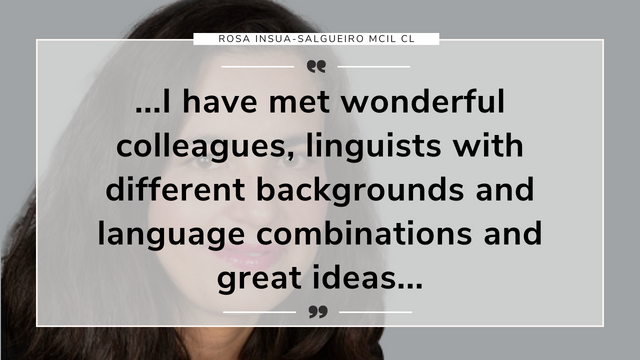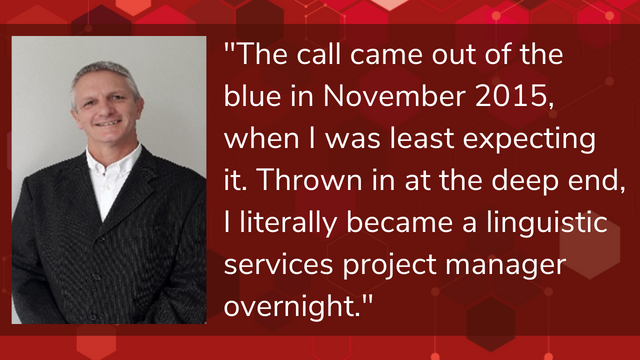-
QUALIFICATIONS
- For Linguists Worldwide
- For UK Public Services
- Preparation
- Policies & Regulation
-
MEMBERSHIP
- Join CIOL
- Membership grades
- NEW for Language Lovers
- Chartered Linguist
- Already a member?
- Professional conduct
- Business & Corporate Partners
-
ASSESSMENTS
- For Second Language Speakers
- English as a Second Language
-
EVENTS & TRAINING
- CPD, Webinars & Training
- CIOL Conference Season 2025
- Events & Networks
- CIOL Mentoring
-
NEWS & VOICES
- News & Voices
- CIOL eNews
- CIOL Awards
- The Linguist
- Jobs & Ads
-
RESOURCES
- For Translators & Interpreters
- For Universities & Students
- Standards & Norms
- CIOL & AI
- All Party Parliamentary Group
- In the UK
- UK Public Services
- Find-a-Linguist
Key Skills of A Mentor
“The key to being a good mentor is to help people become more of who they already are – not to make them more like you.”
The traditional view of a mentor is someone who shares experience and imparts knowledge. In contemporary mentoring a mentor does a lot more listening than talking. A mentor’s role isn’t to tell a mentee what to do, it is to act as a guide. A mentor asks questions and draws out the mentee’s own thoughts before offering advice and providing additional options.
A mentor also challenges, offers a different perspective, another point of view and provides support. While no two mentoring relationships are the same, all mentoring relationships should start with the same solid foundations:
Elicit – ask questions then listen
Challenge – provide a different perspective
Support – encourage and validate
Impart – share knowledge and experience
Mentors pull – they don’t push
A mentor never “pushes” by telling, instructing or giving advice
Mentors pull
- They listen to understand
- They ask questions
- They will paraphrase and summarise discussions
- They can suggest options
- They will give feedback
- They can offer guidance
- They help mentees to solve their problems
American author, John C. Maxwell, once commented: “One of the greatest values of mentors is the ability to see ahead what others cannot see, and to help them navigate a course to their destination.”
Who could become a mentor?
Essentially, the role of a mentor is suited to:
- Anyone would like to help others to develop to the next level and beyond.
- Anyone who wants to step up into a more senior role and needs to develop their coaching, leadership and inter-personal skills
- Forward-thinking managers who want to provide an environment where everyone is encouraged to generate ideas and share not just knowledge but a commitment to personal development.
The many benefits of mentoring for both the Mentor and the Mentee include increased confidence, transformation, motivation, innovation, productivity, collaboration, recognition, appreciation, engagement and fulfilment.
What are the expectations of a mentor?
- Encourage mentees to develop their own resourcefulness: mentoring does not mean giving advice – it is up to the mentee to decide whether to use the information they receive from their mentor.
- Guide the mentee to look at a wide variety of options and consider alternative courses of action in order to solve problems for themselves, rather than to give answers or provide solutions.
- Be a sounding-board and provide a link into other information and people who can help. The mentor doesn’t need to have all the answers.
- Help the mentee gain new personal skills, experiences and knowledge.
- Provide an outside perspective on the mentee and their career
- Help the mentee to develop new attitudes and behaviour, thereby improving both their personal and business performance.
- Listen, in confidence, to the things that are worrying the mentee about their career.
- Help the mentee by sharing their own experience of failures and successes.
- Give friendly, unbiased support and guidance.
- Facilitate decision-making by suggesting alternatives based on personal experience
- Provide honest and constructive feedback.
- Provide ongoing support and encouragement.
Sometimes all a mentee needs is to talk to someone and this process in itself will make actions and solutions obvious. The mentoring process then simply becomes a catalyst for change.
If you would like to become a CIOL mentor and help others reach their goals, log in to My CIOL and follow this link to find out more and set up your profile.
Filter by category
More
The Chartered Institute of Linguists (CIOL), Incorporated by Royal Charter, Registered in England and Wales Number RC 000808 and the IoL Educational Trust (IoLET), trading as CIOL Qualifications, Company limited by Guarantee, Registered in England and Wales Number 04297497 and Registered Charity Number 1090263. CIOL is a not-for-profit organisation.







